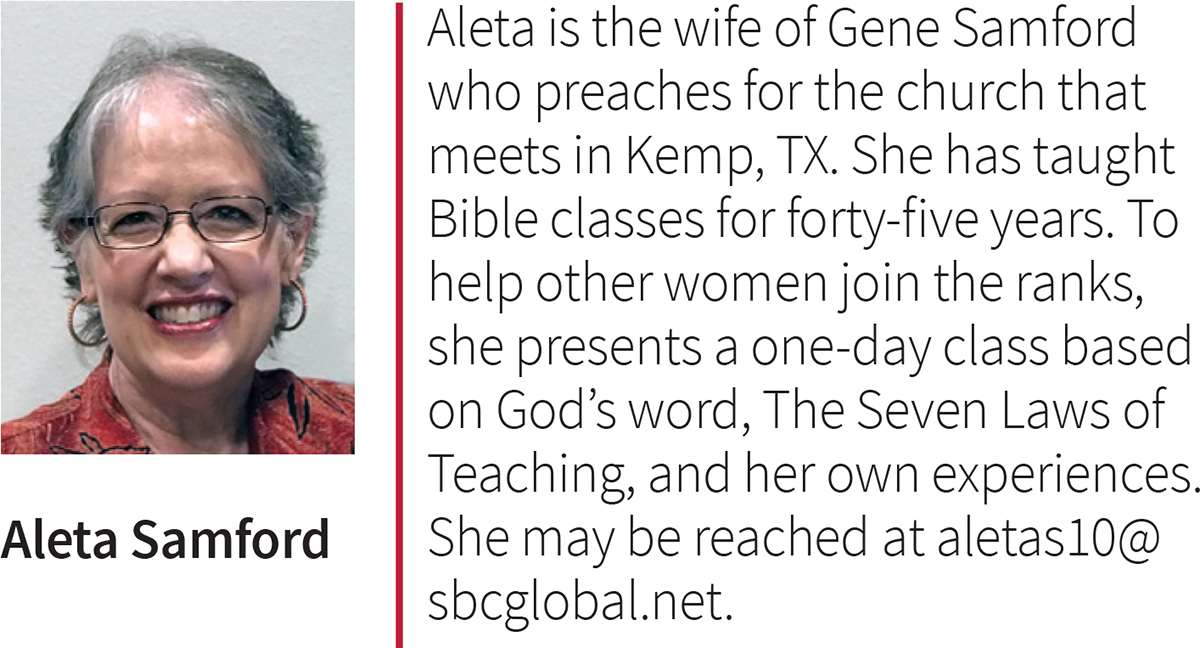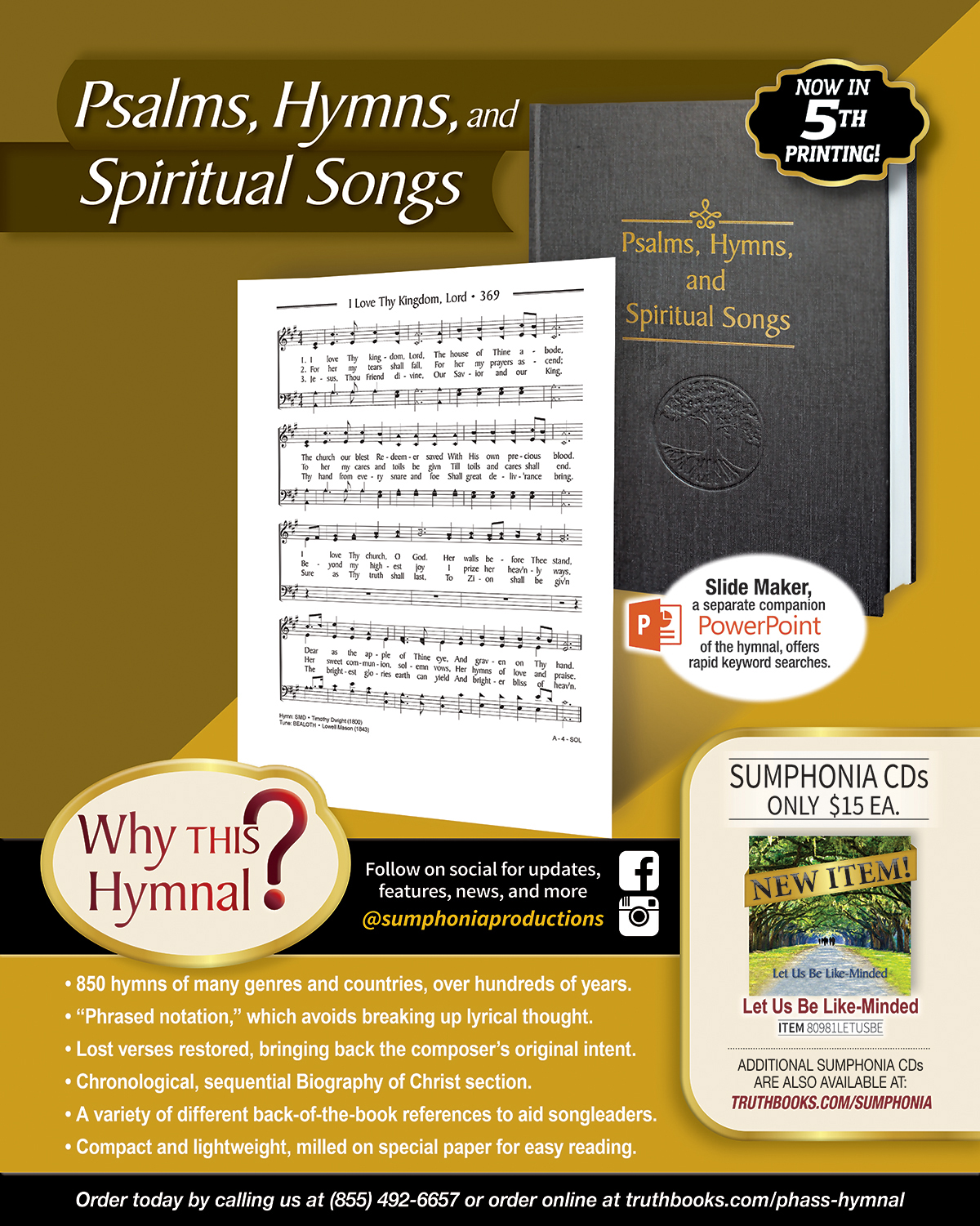
by Aleta Samford
Synopsis: “That which is thoroughly and repeatedly reviewed is woven into the very fabric of our thoughts and becomes a part of our equipment of knowledge. Not what a pupil has once learned and recited, but what he permanently remembers and uses is the correct measure of his achievement” (Gregory, 120).
We come now to the conclusion of this series. This has been about observing certain laws. Laws are unchangeable and dependable, like the law of gravity or the laws of nature. We have covered the laws for the teacher, the learner, the language, the lesson, the teaching process, and the learning process, but we have not finished our work unless we acknowledge and include this last law. "All that has been accomplished lies hidden in the minds of the pupils and lies there as potential, rather than as a possession" (Gregory, 115).
Everything contained in the mind of the student awaits further thinking; the Law of Review and Application is where this thought potential is turned into active habits. It states, "The completion, test and confirmation of the work of teaching must be made by review and application" (Gregory, 115-116).
This law is about perfecting and confirming the knowledge that was presented, making it ready and useful. No time in teaching is better spent than going back over the material. Realize, however, especially for the older child, that reviewing is more than mere repetition where the second movement is exactly like the first, as with a machine. The repetition that involves learning is the revisiting and rethinking of a thought. It involves fresh perspectives and new associations. Its goal is to empower the learner.
Repeated exposure helped the lesson unfold in our minds; repeated exposure will help it clearly unfold in our students' minds. A fresh lesson may catch our attention, and its newness may even amaze us, but we must return, again and again, if we want to see all there is in it and come to a proper understanding of its meaning.
In the time between classes and lesson presentations, our subconscious mind continues to process the material. Reviewing the material from different angles when the class meets again will help your students hear it in a way that deepens their understanding. Children must apply knowledge or else they will "always [be] learning but never able to come to a knowledge of the truth" (2 Tim. 3:7).
Again, are reviews important? The inspired apostle Peter thought so: "For this reason, I will not be negligent to remind you always of these things, though you know and are established in the present truth" (2 Pet. 1:12). As we have pointed out along the way, these principles are primarily found in the Scriptures.
In conclusion, "The study of these laws may not make of every reader a perfect teacher; but the laws themselves, when fully observed in use, will produce their effects with the same certainty that chemical laws generate the compounds of chemical elements, or that the laws of life produce the growth of the body" (Gregory, 128).
What fruits can you hope to produce from your labors in applying these laws of teaching? With all confidence in God's word, and having tested Mr. Gregory's work for years, I believe this for you: Your students will hear God when He calls them through His word because you would have taught them how to listen to you, and therefore to Him. They will believe that Jesus is the Son of God because you would have taught them how to seek out and think about spiritual things.
In thinking God's thoughts, they will repent as they learn the value of knowing the difference between right and wrong. Understanding that they are sinners, they will confess Jesus as the Son of God and their Savior. The next natural step will be obedience in baptism.
Because you challenged them to solve problems and recognize God's thoughts as the answer to daily trials, they will come to God's conclusions instead of their own, and they will live faithfully. They will be able to say with confidence, "Thy word I have hidden in my heart that I might not sin against you" (Ps. 119:11).
It has been my pleasure to share this material with you. May God receive all the glory as we learn better how to take His word to the heart of our children. 


